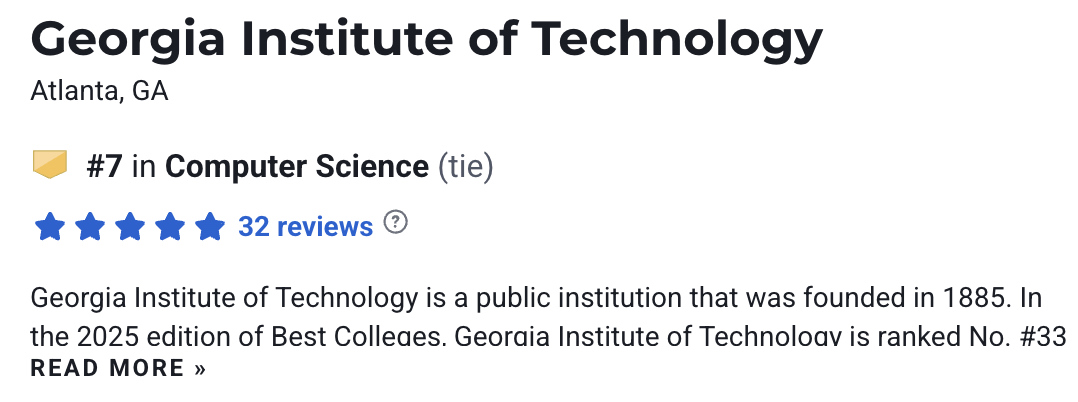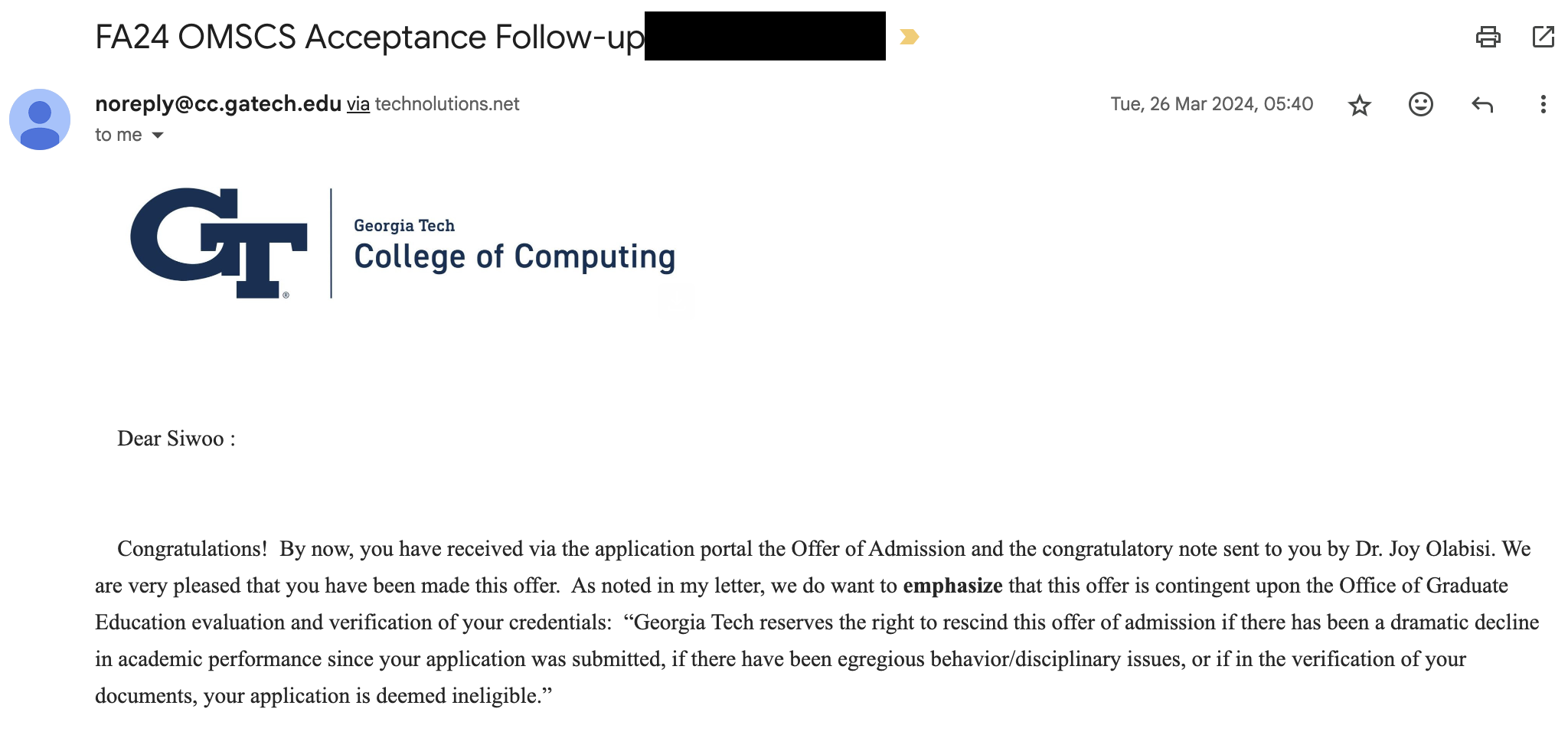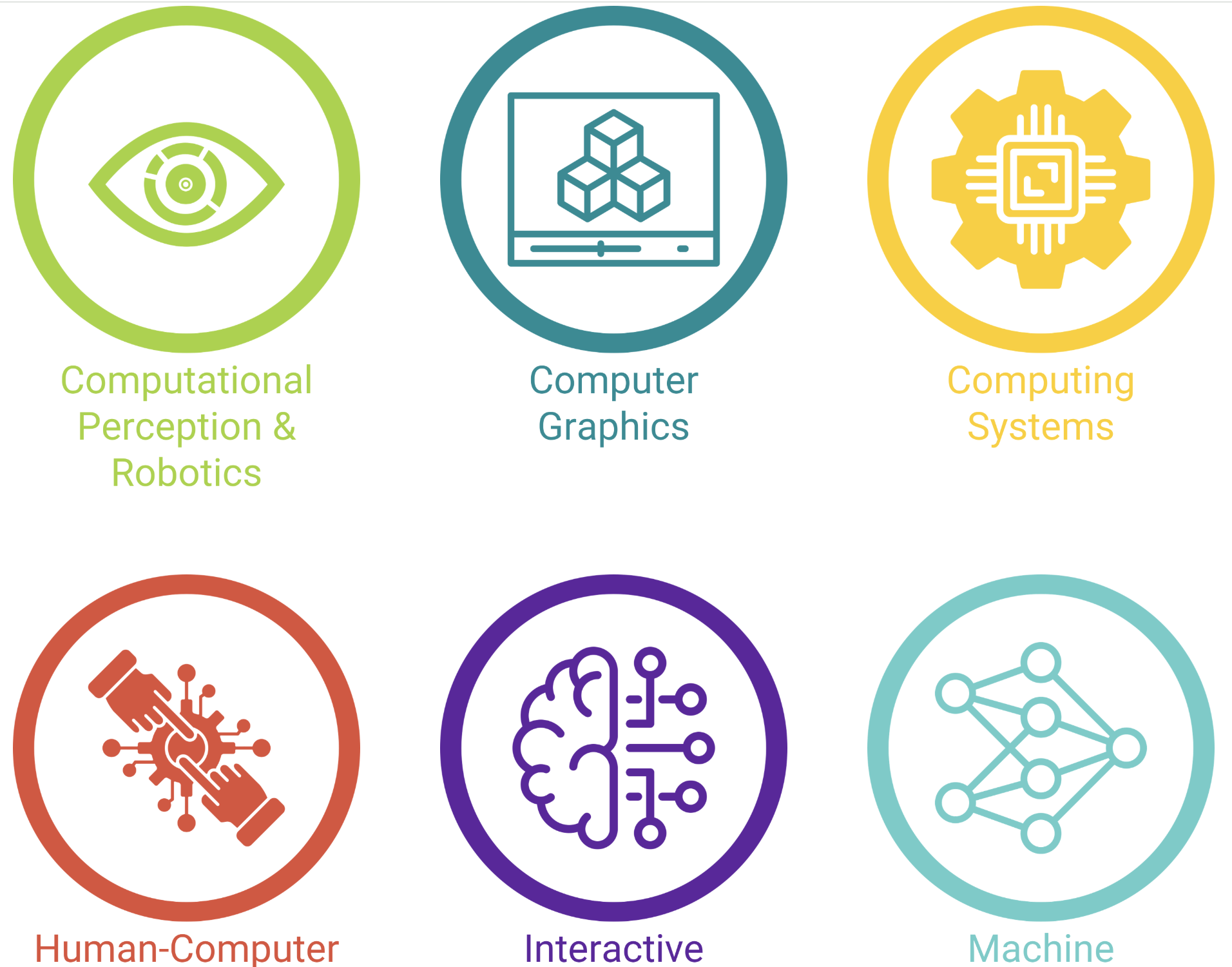Georgia Tech OMSCS Admission Without CS Background
What is OMSCS, why I chose OMSCS and what you need for OMSCS.
Introduction
I started OMSCS in Fall 2024, and I just completed my second course.
I graduated with a bachelor’s degree in chemical engineering and was a master’s student in chemical engineering between 2022 and 2024. However, I had always wanted to transition into the tech industry, so I desperately searched for every possible opportunity that could boost my chances. This led me to discover the Online Master of Science in Computer Science (OMSCS) program at Georgia Institute of Technology.
What is OMSCS?
OMSCS stands for Online Master of Science in Computer Science, a highly regarded online graduate program offered by the Georgia Institute of Technology (Georgia Tech).
Why OMSCS?
1. Prestigious Institution
 Georgia Tech Rank in 2025 (USNews)
Georgia Tech Rank in 2025 (USNews)
Georgia Institute of Technology is consistently ranked among the top 10 computer science programs in the United States. The OMSCS program offers the exact same curriculum, faculty, and degree as the on-campus program. When you graduate, your diploma will simply say “Master of Science in Computer Science” - there’s no mention that it was completed online. You can even walk in the graduate school ceremony, whereas UT Austin’s online students can no longer do so. This makes OMSCS one of the most prestigious and recognized online CS programs globally.
2. Affordable Tuition
The total cost for the entire OMSCS program is approximately $7,000-8,000 USD, which is incredibly affordable compared to traditional master’s programs that can cost $40,000-80,000. This is even cheaper than the costs for most Australian graduate programs for domestic students. You pay per credit hour (around $225 per credit), and the program requires 30 credit hours total. This makes it accessible for working professionals and career changers who need to manage their finances carefully.
It used to be $195 per credit in 2024, so the price is definitely increasing.
3. Flexible Learning Format
OMSCS is designed for working professionals. You can:
- Study at your own pace: Take 1-2 courses per semester
- Work full-time: Classes are asynchronous with recorded lectures
- Choose your schedule: Complete the program in 2-6 years
- Learn from anywhere: No need to relocate or quit your job
According to the statistics, 80% of students are working full-time, and so am I!
When certain conditions are met, you can take more than 2 courses per semester.
4. Research Opportunities
Although OMSCS is a coursework degree and a thesis is not a graduation requirement, selective students can participate in a three-credit research course - CS-8903.
Curriculum
OMSCS offers six specializations, each with its own set of required and elective courses:
Admission Requirements
Refer to the link for details.
Academic Prerequisites
- Bachelor’s Degree: Any field is acceptable. However, it must be a four-year degree.
- GPA: 3.0+ recommended (but not strictly required for strong candidates)
- OMSCS recommends you hold academic credits in the following areas:
- The fundamentals of programming.
- Object-oriented design principles such as encapsulation, abstraction, polymorphism, and inheritance.
- Data structures such as lists, stacks, queues, trees, and hashmaps.
- Algorithms such as AVL, MST, Dijkstra’s, and dynamic programming.
Required Application Materials
- Official Transcripts
- Letters of Recommendation: 3 letters from professors, employers, or technical supervisors. It is not technically letters, but closer to a short-answer form.
- Resume/CV
- TOEFL/IELTS: If applicable.
Statement of Purpose (SOP) and Graduate Record Examinations (GRE) are not required.
My Application Strategy
Academic Background
OMSCS expects applicants to hold academic credits in several undergraduate CS and math courses, such as Data Structures & Algorithms (DSA) and linear algebra. Fortunately, as a ChemE graduate, my undergraduate degree covers key mathematics requirements, although I did not take discrete math, which is another core math course for CS students.
Additionally, during my master’s in ChemE, I took DSA and principles of programming (in Python) courses.
Programming Skills
If you did not have a chance to earn academic credits in CS courses, Georgia Tech officially offers several MOOC courses, such as:
- Introduction to Python Programming
- Introduction to Object-Oriented Programming with Java
- Data Structures & Algorithms
And yes, I took all three MOOCs just to boost my chances.
MOOC/Certificates
In addition to Georgia Tech’s official MOOCs, I submitted all other MOOCs and certificates I held at that time, such as:
- Harvard’s CS50x
- AWS Certified Cloud Practitioner
- Microsoft Certified Azure Fundamentals
Referees
As previously stated, I had opportunities to take DSA and principles of programming (in Python) courses during my master’s candidature in ChemE. I fortunately maintained relationships with two professors from these courses, and they were happy to be my referees. For the third referee, I requested another professor, who is not in the CS field.
Useful Links
- OMSCS Specializations
- Preparing Yourself for OMSCS
- Application Instructions
- Additional Application Guidelines
- Before You Apply
Conclusion
OMSCS represents an incredible opportunity for career changers like myself. The program’s combination of flexibility, affordability, and reputation makes it an excellent choice for anyone looking to transition into the tech industry.
If you’re considering OMSCS, I encourage you to:
- Start preparing early
- Build a strong foundation in programming and mathematics
- Show continuous learning and improvement
- Be authentic about your background and goals
The effort is worth it for the opportunities this degree can open up. OMSCS has already helped thousands of career changers successfully transition into the tech industry, and I’m excited to be part of this journey.

